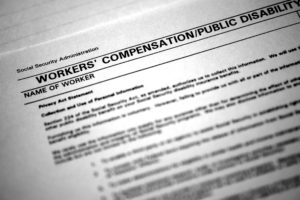Can You Quit Your Job While On Workers’ Compensation?
When you’ve suffered workplace injuries, you might wonder if it’s worth staying in your current position. There are many reasons employees are forced to make that difficult decision, from a hostile work environment to physical limitations. However, before you hand in your resignation letter, there are a few factors to consider. Even though workers comp’ laws require employers to pay certain benefits, you may lose out on other company perks if you voluntarily resign before settling your claim.
What Can Happen If You Quit Your Job During A Work Comp Claim?
When you quit your job during an ongoing workers’ comp, you need to know the potential consequences of doing so. Here are three potential concerns that may occur if you decide to resign.
No Resignation Deal
Many companies have resignation packages when handling workers’ comp settlements. Sometimes, your employer may even give you a generous financial compensation package in exchange for your resignation. However, if you leave your position too early, a company won’t have a reason to offer you a deal since you decided to resign.
Your Injuries May Worsen
If your injuries worsen, you may be eligible for further company benefits. But if you resign, it can make increasing compensation more complicated, especially if you choose to work elsewhere. Your former employer may argue that your injuries worsened due to your new job or other factors outside their control.
Missing Work At A New Place of Employment
If you miss work at your new job, it becomes more challenging to determine wage compensation benefits if your absence is because of damages you sustained at your previous position. If your injuries worsen, it may leave your new employer responsible for further compensation, leading to further conflicts that can hurt your claim.
Can Your Employer Force You To Resign For Filing A Workers’ Comp Claim?
In most states, an employer cannot force you to resign a position for filing a workers’ comp claim, and they also cannot legally prevent you from filing a workers’ comp claim. In New York’s workers’ compensation laws, an action like that would be considered discrimination. However, an employer isn’t required to hold your position if you cannot work, and they must fill the vacancy due to company needs. In addition, they can allow another person to take over your job duties during your recovery.
What Does New York’s Workers’ Comp Cover?
If you decide to quit your position, you can still qualify for cash and medical benefits under New York’s workers’ comp laws. Cash benefits must equal two-thirds of your wage before the incident and can increase to maximum compensation if you can’t return to work due to your injury. In the event of a work-related injury, you are entitled to free medical treatment, provided the workers’ compensation board, or your employer approves it.
Can You Still File A Claim After You Quit Your Job?
Yes, you have the right to file a workers’ comp claim after you have resigned from your position. However, you must prove that you sustained your injuries while still working. New York workers’ comp laws also require you to notify your employer in writing of work-related medical conditions within 30 days. After you inform them, you have exactly two years to file the claim.
A Professional Workers’ Compensation Attorney Can Help You
After your workplace incident, it is entirely understandable that you are considering leaving your current position during the claims process. As long as you appropriately notify your employer, you’re still eligible for workers’ compensation benefits whether you decide to stay.
Were you the victim of a work-related accident and need a professional attorney to help you with your case? Don’t hesitate to contact our workers’ compensation lawyers at Turley, Redmond, and Rosasco. Call us at 877-693-2529 or complete our online intake form to schedule a free initial consultation today. We serve Brooklyn, Queens, Long Island, and more.


